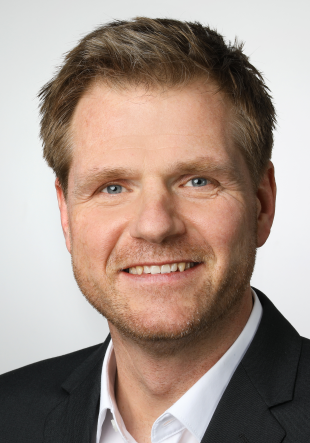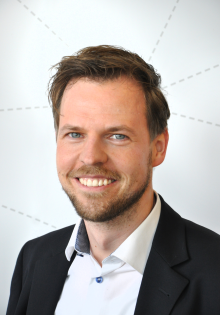Stable energy supply using artificial intelligence: Paderborn’s researchers and companies shine a spotlight on operation and control strategies for microgrids
The shift to a sustainable, efficient and cost-effective energy supply is one of the key challenges of the 21st century. Local grids, known as microgrids, offer huge potential in this area. For decentralised and cellular energy systems, it is important to ensure balance between energy supply and demand even at local level. The challenge in this is ensuring a consistent, efficient energy supply from green sources. Data-driven and self-learning processes can offer assistance, but intelligent solutions thus far have had numerous shortcomings. This is where a new project comes in, involving researchers from Paderborn University and SICP – Software Innovation Campus Paderborn working closely with business partners WestfalenWIND GmbH and Westfalen Weser Netz GmbH. The aim is to develop an open source framework to address the problems that may arise when operating decentralised energy grids. Standardised, readily accessible tools to study data-driven controllers for energy technology will help promote the switch from the current energy supply system to a collective structure shaped by sustainable and renewable energies. The Federal Ministry of Education and Research (BMBF) has been funding the “Training, validation and benchmark tools for the development of data-driven operation and control strategies for intelligent, local energy systems” (DARE) project since October 2021, providing around 988,537 euros over two years.
Small grid, big impact
Microgrids are a vital part of the solution for the energy revolution: they are made up sustainable energy sources such as wind farms, energy storage devices such as batteries, and energy consumers across various sectors, such as electricity, heat or mobility. Local grids can supply households and industrial companies with energy either connected to a grid or autonomously in isolated operation. “The benefit of microgrids is that their local integration provides renewable energy close to consumers, enabling it to be used directly by said consumers a short distance away. This lightens the load on supra-regional energy grids and reduces the need for grid expansion. In addition, the proportion of renewable energies used increases, as it does away with the need for lossy transport over long distances and for unnecessary deactivations of renewable power plants due to grid bottlenecks”, explains Dr. Gunnar Schomaker, “Research and Development Manager – Smart Systems” at SICP.
The challenges of operating microgrids
However, there is a central challenge to be overcome when operating microgrids, namely using operation and control strategies to ensure a consistent, efficient energy supply. “A stable energy supply is harder to sustain in decentralised grids than it is in central grids supported by conventional large-scale power plants, due to volatility and fluctuations, since renewable power plants typically only have small storage and reserve capacities”, explains the project’s scientific director Dr.-Ing. Oliver Wallscheid of Paderborn University’s “Automatic Control” group. “This means that the operation and control of stochastic – i. e. unpredictable, heterogeneous and volatile – energy grids like these cannot simply be carried over from the traditional top-down strategies used for large central grids”, adds Junior Professor Dr. Sebastian Peitz of the “Data Science for Engineering” group.
“Instead, one possible solution that stands out is data-driven, self-learning strategies, e. g. from the field of reinforcement learning. However, the problem here is that these learning, innovative intelligent control technologies cannot be immediately deployed due to security and availability issues, but instead first have to be improved and evaluated in a closed simulation cycle using synthetic, i. e. artificial data”, the researcher adds. Although some solutions already exist, these are very heterogeneous and are often built on significantly simplified model environments, preventing any assertions regarding future transfer into the real world. Furthermore, there is no established comparative benchmark for objectively and quantifiably evaluating data-driven controllers.
The project team is seeking to change this: “Our project is therefore aiming to develop an open-source simulation and benchmark framework that will map out the current structure of issues involved in operating decentralised energy grids. Standardised and readily accessible training, validation and comparison tools will speed up research into data-driven controllers for energy technology and make it comparable by drawing on collective knowledge”, Wallscheid notes. By combining theory and practice, the project partners are seeking to enable realistic evaluation scenarios and ensure the transfer of data-driven controllers from simulations to field operation.
Solution for energy supply in emerging and developing countries
Wallscheid explains that microgrids are a core element of the energy revolution, but also a key building block for establishing a fundamental energy supply in emerging and developing countries. “The fact that microgrids are connected to the grid but can also be operated autonomously in isolated operation represents a typical situation for remote, off-grid areas. As well as contributing to the energy revolution in Europe, microgrids are therefore also a key building block for establishing a fundamental energy supply in emerging and developing countries, particularly in sub-Saharan Africa where there is no long-term prospect of developing a central energy infrastructure in sparsely populated rural areas”, the researcher emphasises.


![[Translate to English:]](/fileadmin/_processed_/3/8/csm_UPB_Dr._Gunnar_Schomaker_Adelheid_Rutenburges-min_c816d3cb42.jpg)



